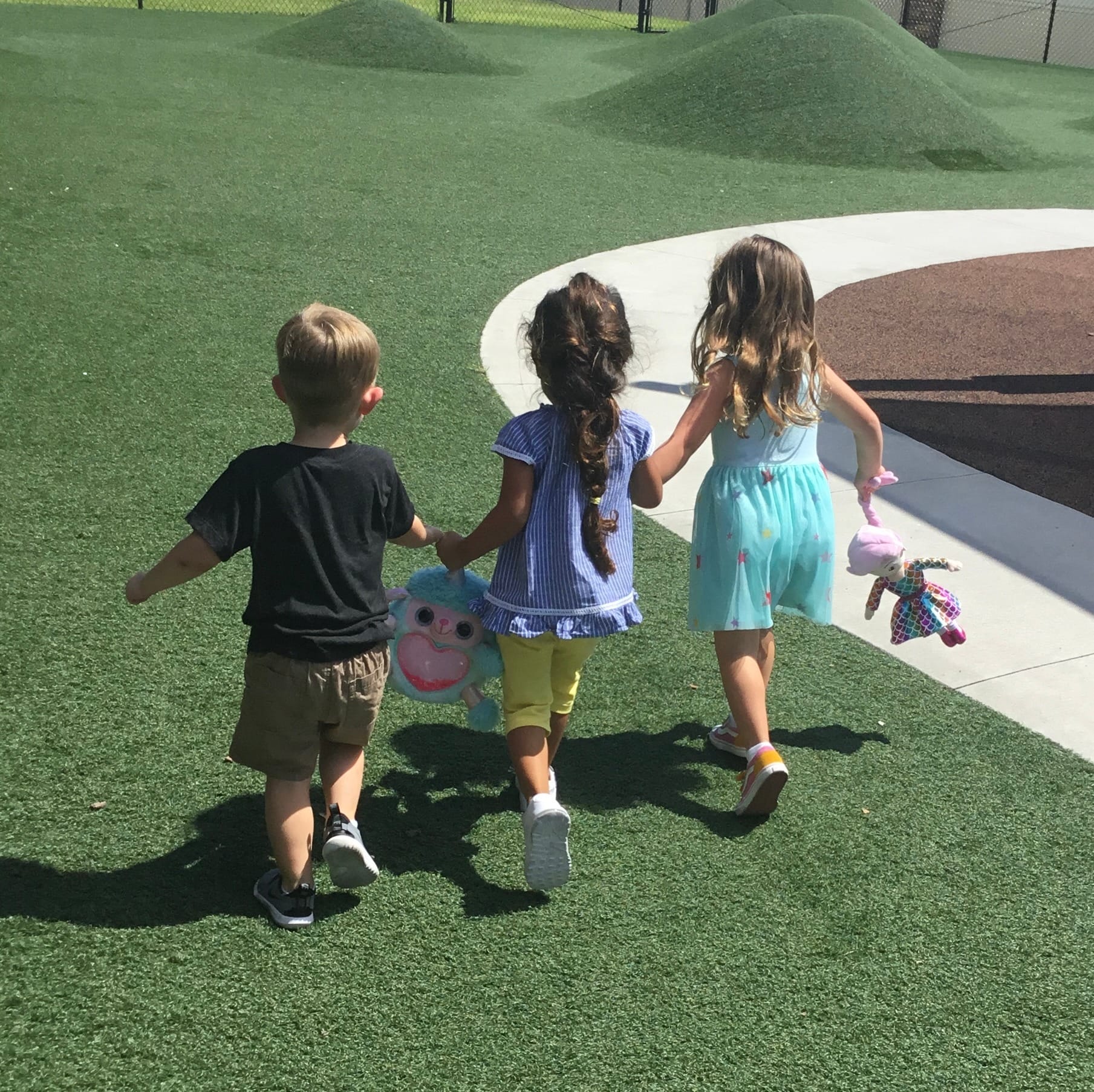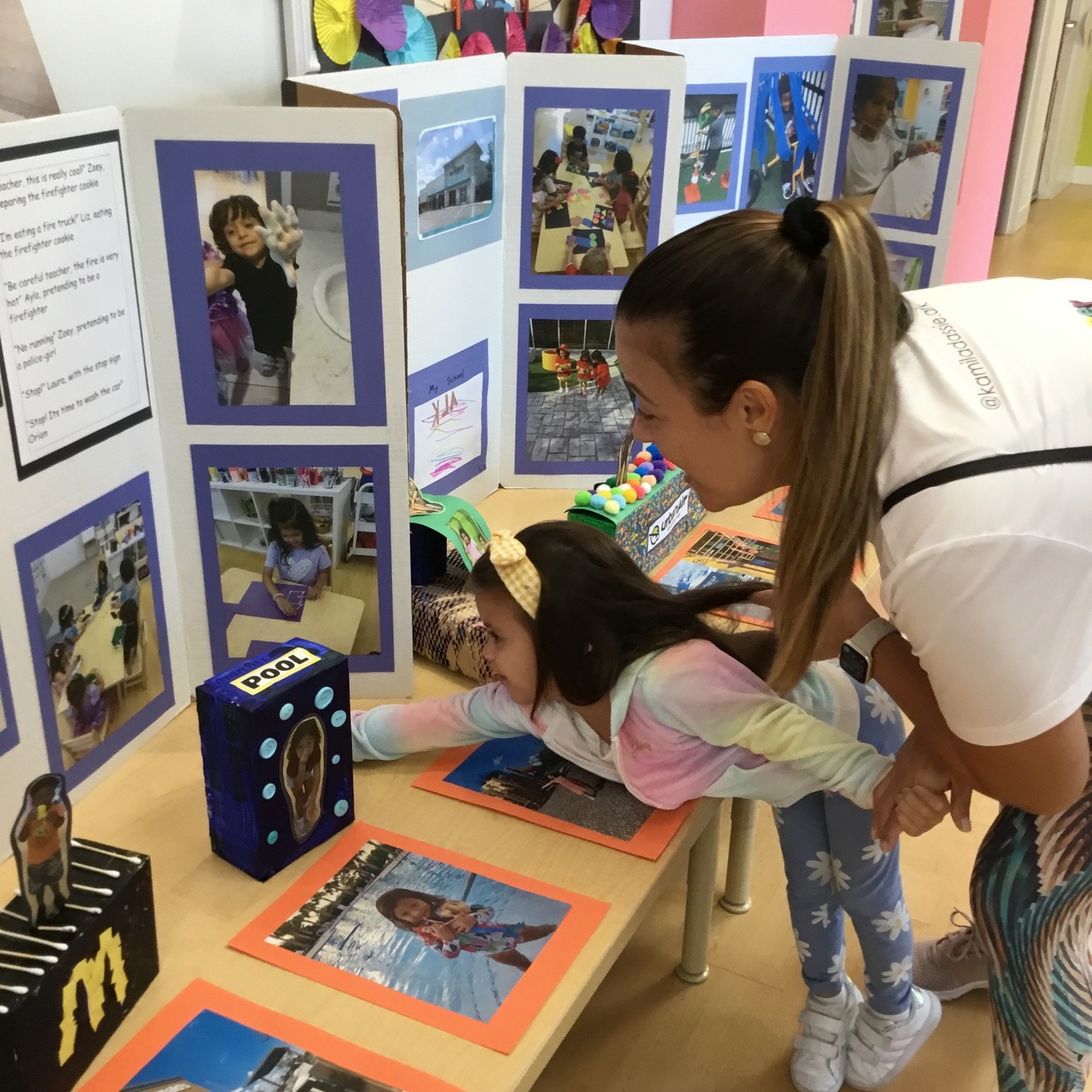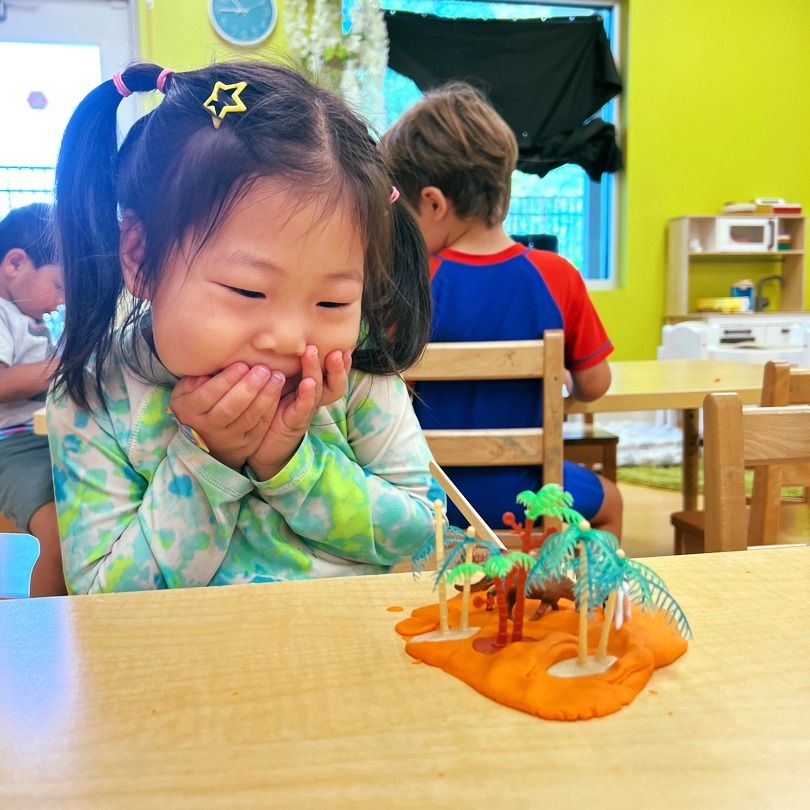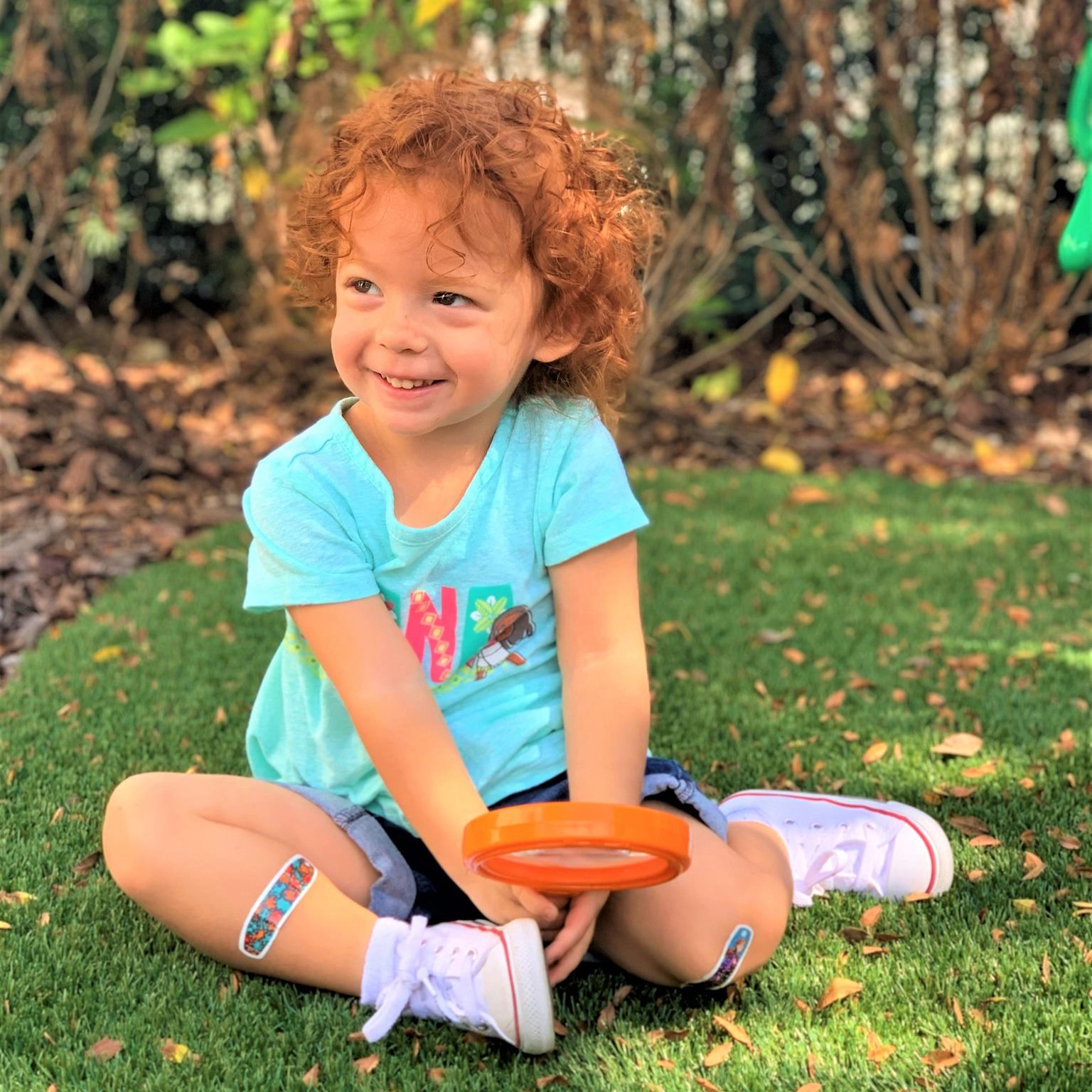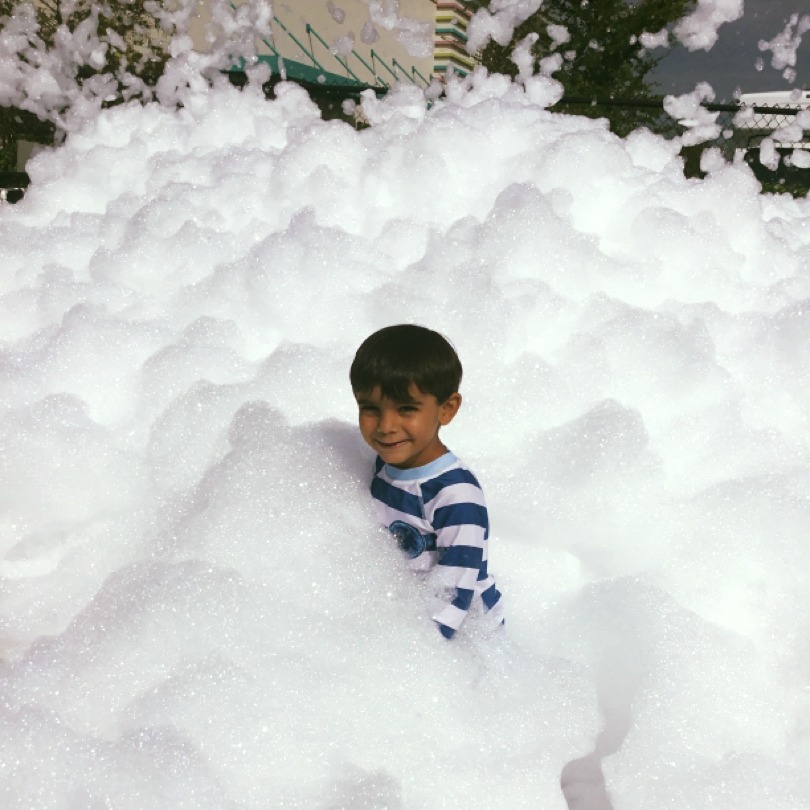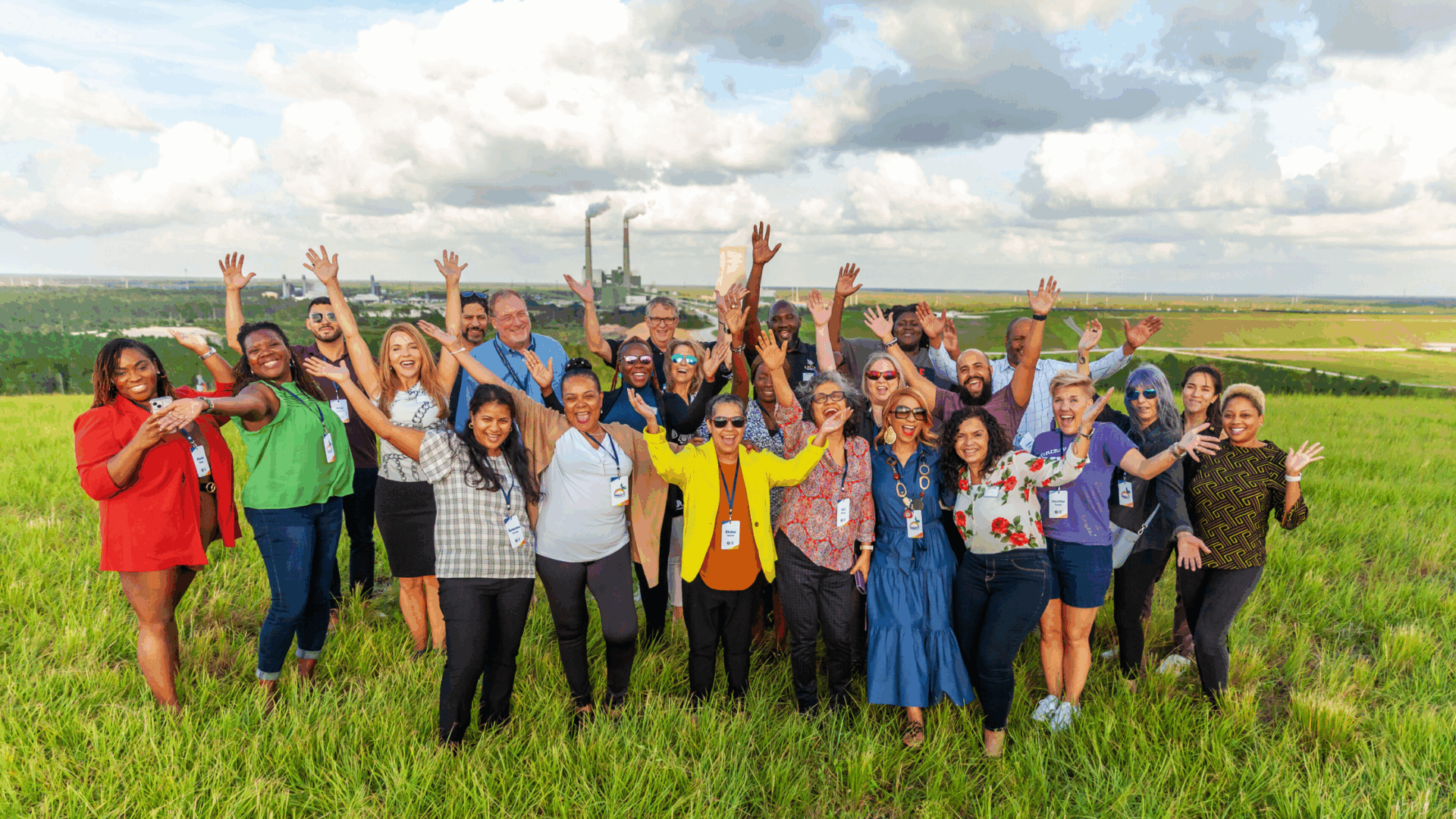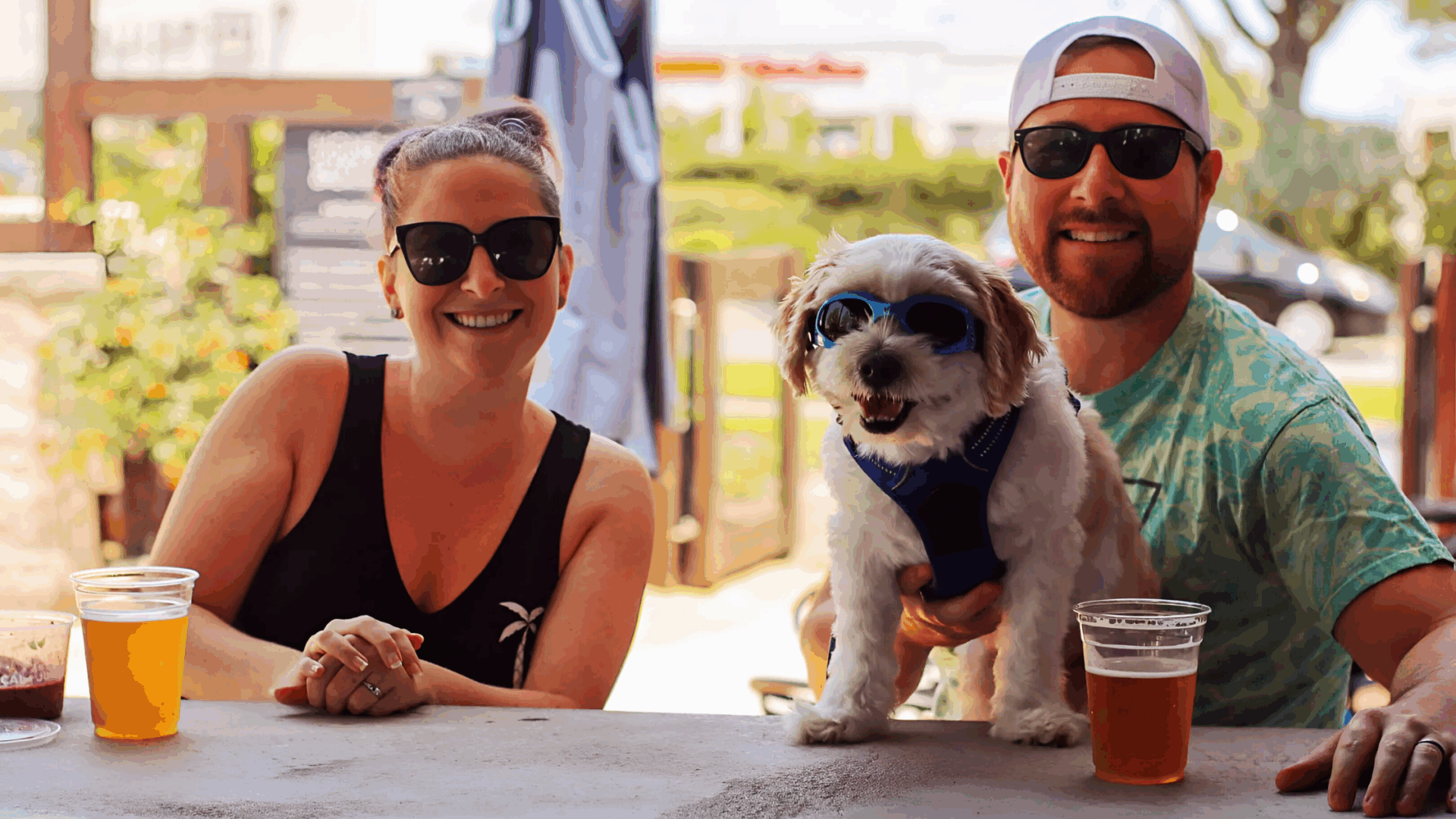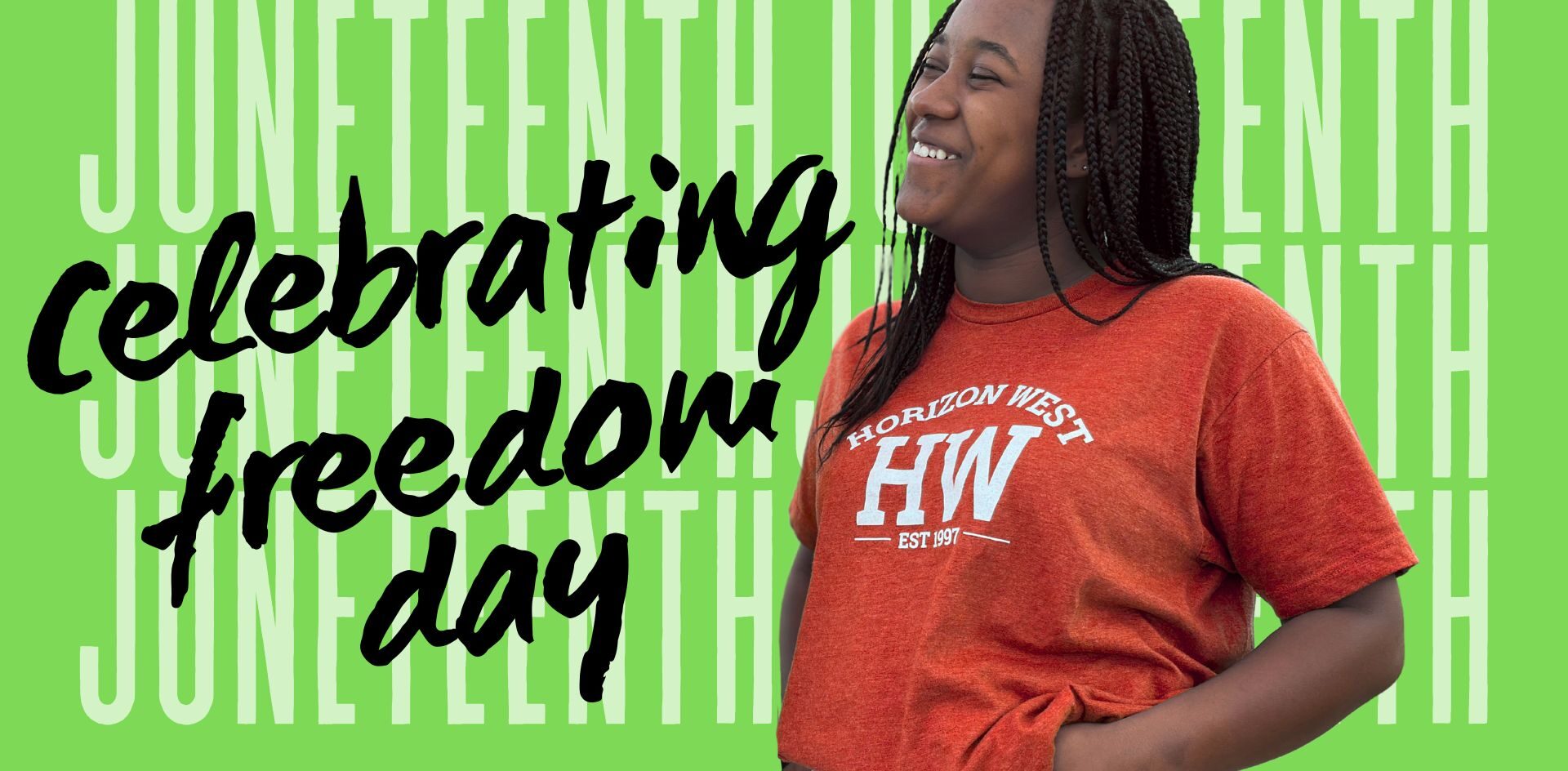Meet Milena Barros – Pedagogista of KLA Schools of Horizon West!
16 November, 2023

Learn All There is To Know About Reggio Emilia Education
KLA Schools of Horizon West is unparalleled in early education. We interviewed Milena Barros- Pedagogista of the school to tell you about her role, what makes KLA so unique and why every child deserves the education offered at this Horizon West preschool.
What is Your Background in Early Education?
I went to high school to work with children. In Brazil we have a technical course that replaces high school and is called Magisterio. It gives you the degree to work with children up to 10 years old. So, at 18, I started teaching. Then, I went to college and graduated in Pedagogy.
I went to Italy, initially interested in the work of Maria Montessori, but when I got there I heard about the Reggio Emilia Approach from a Newsweek article; naming Reggio Emilia schools the best pre-schools in the world. So, after studying Italian at the University of Bergamo, I went to Reggio Emilia, requesting an internship, but I was denied. I was offered a spot at a seminar taking place a month later. I wanted to delve deeper into the unique experience so, I went to Modena – the neighboring city of Reggio, where they were inspired by their work. There, with the help of Mrs. Laura Saitta (Modena’s commissioner of education), I had the opportunity to learn about and study the educational work that was already being carried out. Six months later, Mrs. Laura Saitta recommended me to Mr. Sergio Spaggiari – Reggio’s commissioner of Education. He sent me a letter accepting me in Reggio for 6 months as an intern. In addition, I could also attend all study groups and seminars that took place in the city. This was in 1994 and every month there was a delegation coming to visit and learn about their work. I met pedagogues from the United States, Portugal, Italy, Denmark, and Germany. In addition to seeing their educational theory in practice – which left a deep impression on me.
What is a Pedagogist?
The “Pedagogist” has a very important and privileged role in schools inspired by the Reggio Emilia Approach. She works with children, teachers, and parents. She is the link between the relationships happen at school between each person involved. This is beautiful! In the case of KLA, I asked if I could also coordinate the long and short-term projects; these are the basis of the curriculum in Reggio Emilia.
I have a class where children are challenged with topics that interest them and where they are free to explore. We work with small groups of children. As they explore, I systematically document their actions, expressions, speeches, etc. These clues will guide me – along with their teachers- to deepen the children’s interest in the projects we will explore together. Being able to live with them in these moments when they are building their own knowledge and marveling at each discovery is truly a privilege! The basis of my role is the image of the child, the parents, and the school that I carry: A child that is unique, a protagonist, and with much capacity for curiosity, communication, and amazement. Parents that are the first teachers, who have the right to participate and help us when needed, and are together with us along the way. KLA is a school where everything is connected, where the adults collaborate around the same goals. The responsibility of the Pedagogist is to work with teachers, to identify new themes and experiences for continuous professional development and in-service training. For this, I must be open to different points of view. I constantly try to help the teachers improve their skills of observing and listening to the children, documenting, and projecting, and I also choose texts for the teachers to read and debate in our weekly meetings. Tiziana Filippini- Pedagogista from Reggio Emilia- says that a “Pedagogista must be available to support teachers in their daily relationships with individual families. Must be receptive to everyone’s expectations, needs, requests, suggestions, delicate concerns, and occasionally stressful relationships”. For this, at KLA I count on the constant help of the director, Ms Salina.
What is Reggio Emilia?
Reggio Emilia is a city in northern Italy that has a beautiful history of choice and true investment in children’s education after the Second World War. Today they have 33 public pre-primary schools. Behind all their history, there’s an amazing special pedagogical mind: Professor Loris Malaguzzi. But you might wonder what’s so different about them. What this man has seen and created that we didn’t have before?
So, it starts with the strength of the image of the child we have, which will guide us. Yes, your image as a child will determine the type of approach you choose to use, your image as a child will affect the decisions you make on a daily basis. They (and so do we) see the child as rich, powerful, a holder of rights, strong, beautiful, with ambitious desires and requests, competent, a protagonist, builder of meaning. Therefore, the experiences that children have in their schools are beautiful, rich and so creative.
Furthermore, the environment becomes the third teacher, exerting a fundamental influence on what we do, how, why, and where we do it. Schools have an atelier (and each classroom has a mini-atelier) where children can express themselves freely, always with lots of materials (because artistic expression is fundamental in our lives). Parents (who are the first teachers) are respected as such and have a fundamental importance in the school’s educational process. And teachers also start to have a different role: They don’t teach. Why would I teach what children can learn from their own discoveries? Why not allow them to have that desire to explore and reach their own conclusions, which helps their precious self-esteem create strong roots that will help them throughout their lives?
Therefore, we are researchers, documenters, listeners, provocateurs. This documentation is taken seriously, it will be a powerful instrument for reflection and future action. A documentation that focuses on the detail, the nuances, and the process. And so, the emerging curriculum is built daily by children’s interests and by projects created by children with teachers.
Isn’t it wonderful to work in a place where children feel like they belong precisely because their interests are respected and where teachers are researchers and learn from children every day due to the quality of documentation we produce? I answer you: yes, no day is the same and children constantly surprise us with their observations, in this socio-constructivism experience, where exchange is essential!
Why Do You Love What You Do?
What’s not to love? I think that in the answers above, in each sentence there is my love for what we experience within this school. Love for a look, for a gesture, for a movement, for an artistic production, for a negotiation between two children, love for seeing that they also allow themselves to feel anger, frustration, and sadness and that they have space for this, respecting their friends (or learning how to do this) , love for seeing them grow daily exploring what they like and how they like it, love for hugs, for empathy, for the proud looks that reveal valued self-esteem, love for the child who wants to come to school because adults value their effort.
This love leads me to work more than I should, to create more than I thought I could, to dedicate myself one thousand percent to school… just to be able to witness these reactions in them: complete wonder! Full of happiness because they are the authors of their own learning! Love for their 100 languages, and love to see kids transform the ordinary into the extraordinary. How can I not love being in a place where I can touch happiness?
Why Do You Think Your Experience and the Philosophies You Practice in Education are Important?
I believe that my experience and the philosophy I practice in education are important because I feel the happiness of the children, teachers, and parents within KLA. How sad is a school where children only obey. How sad is a school where children learn what adults decide. How sad is a school where the teacher doesn’t want to come, doesn’t want to stay. How sad is a school that children don’t want to go back to. How sad it must be at school where children are there in a race to read, write, and calculate (in a pedagogy of transmission), instead of being respected as the children they are, explorers of the world and themselves (in a pedagogy of listening)?
I believe that what we do at KLA is important because every day someone smiles, someone relates, someone screams with happiness, someone creates affectionate memories, someone does scientific research, someone becomes more confident, and someone feels loved. Someone says “Teacher, look” and the teacher looks, smiles, and takes a photo. Because for a child, making a beautiful drawing it is just as important as being looked at, admired, noticed, and valued.
What Do You Want Parents to Know About KLA Schools?
I want them to see what I see. The meticulous detail in which we each give our all to the children. I want them to see the care with which I see the cleaning staff sterilize everything and clean the floor so many times. I wish they could be at a weekly meeting of teachers, where there are so many beautiful exchanges. I want parents to see the enthusiasm that teachers feel when they document children and their discoveries and share this with their colleagues with great emotion. I want parents to have a day in our classrooms watching the assistants carry, dance, and play with their children. I want them to be with teachers who voluntarily show up on weekend sjust to make sure they would see their kids’ production and documentation at an exhibition. I want them to know that the director has unparalleled patience and that she dedicates herself to each child as a unique person. I want them to meet the owners and get to see how much they value the Reggio Emilia Approach for their kids, and how much love they put in that school.
I want them to leave their children at KLA and feel calm in their souls knowing that they are happy; very happy here, and that we have fun with them because we truly love being with them.
To book a tour, meet Milena, and learn more about KLA Schools of Horizon West, visit them online or give them a call: 407-917-4343







